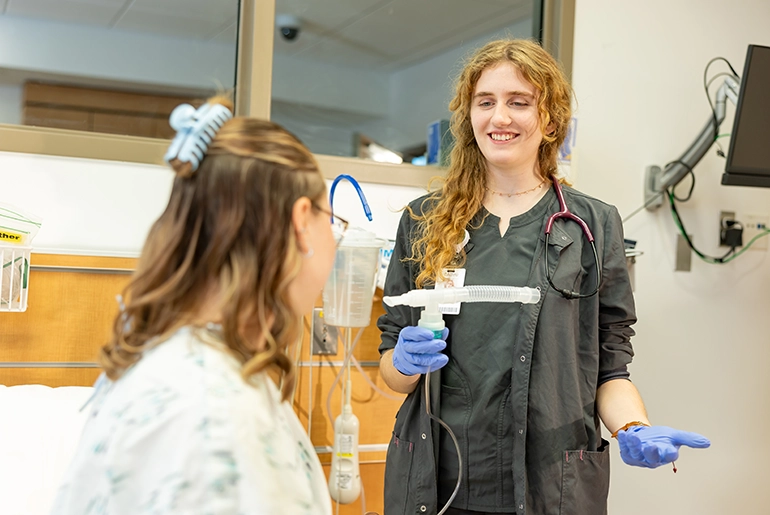

From an early age, Elisabeth Starosta saw two sides of medicine: science and humanity.
“My dad has an M.D. and a Ph.D., so I grew up seeing the research side,” she said. “And when my mom was diagnosed with MS when I was young, I saw what compassionate, diligent care really meant.”
Those experiences sparked an early fascination with medicine and shaped her dream of becoming a physician.
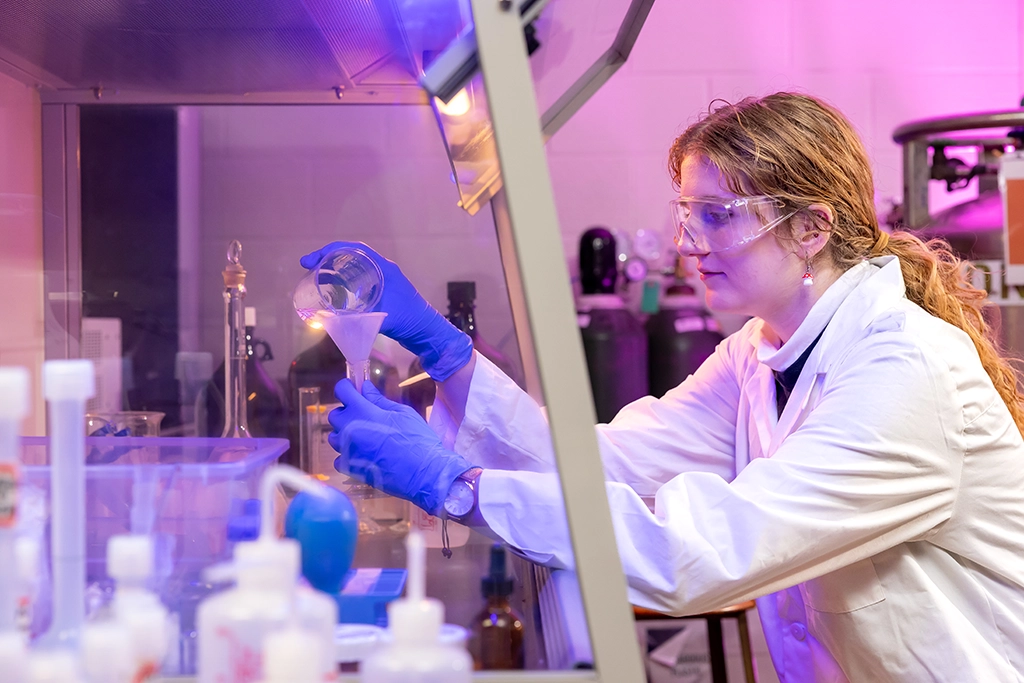
At UND, Elisabeth discovered a love for organic chemistry.
Knowing she wanted to pursue medicine, Elisabeth applied only to UND.
“I actually started out as a biomedical engineering major,” she said. “But then I realized it wasn’t for me. My roommate was a chemistry major, and she suggested I move to chemistry. I tried it and loved it.”
UND empowered me to explore all my interests — science, global studies, mentoring — and to find meaning in each one.
Now pursuing biochemistry and in the UND Honors Program, Elisabeth walks an academic path that bridges curiosity and kindness, combining a fascination with molecular science and a desire to make a difference through medicine.
“As soon as I went in, my first classes were organic chemistry — I love organic chemistry,” she said. “They’re some of my favorite classes I’ve ever taken.”
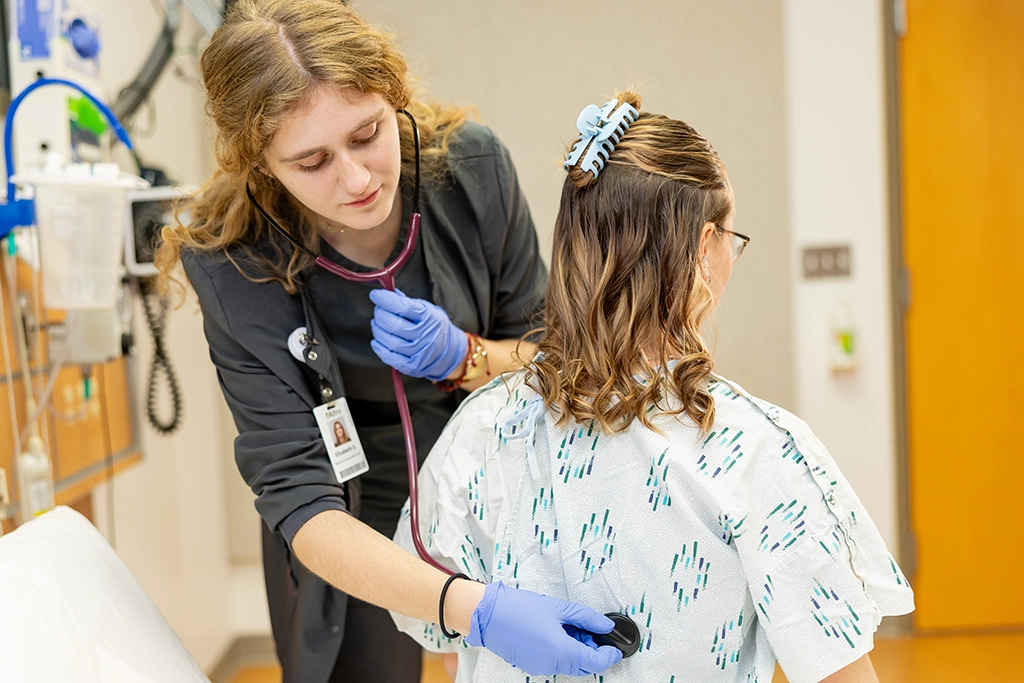
Outside of classes, Elisabeth has gained hands-on patient care experience as a Respiratory Specialist EMT at Altru.
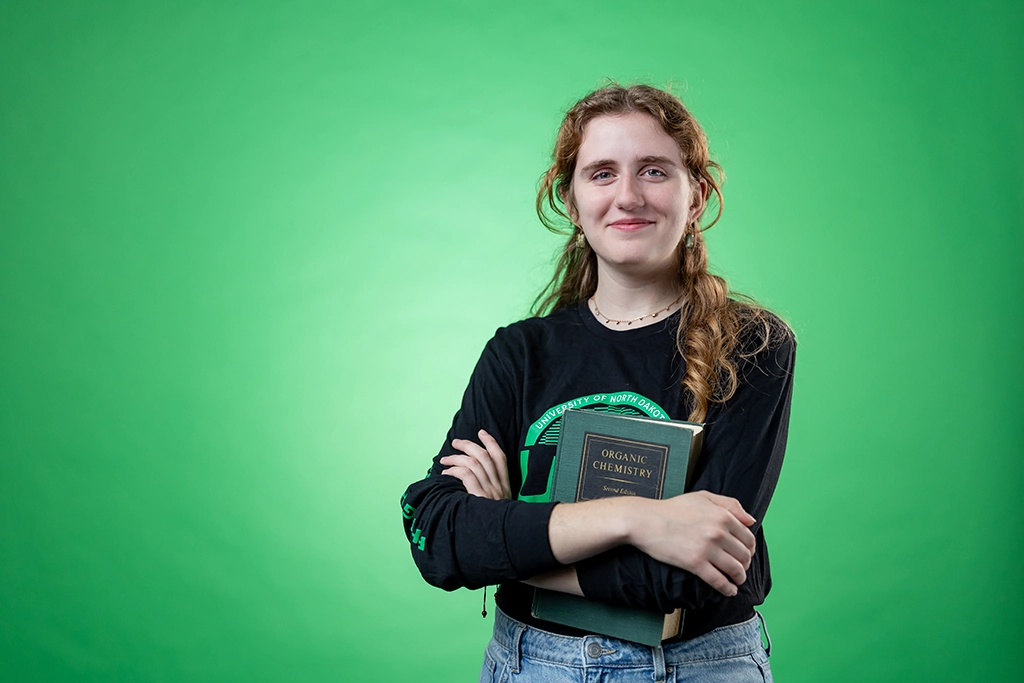
Elisabeth had an internship opportunity to synthesize cancer medications at the MD Anderson Cancer Center in Houston, one of the world’s leading cancer research institutions.
That passion led her into research.
“I was looking through UND job postings and found a chemistry position that said they synthesized compounds to create cancer medication. I thought that was amazing,” she said. “I applied and got the job. I’ve been working there for about two and a half years now — it’s exactly where I wanted to end up.”
Through her UND experience, Elisabeth was led to an internship opportunity to synthesize cancer medications at the MD Anderson Cancer Center in Houston, one of the world’s leading cancer research institutions. “It was one thread that I just kept following,” she said. “It opened up a whole new world for me.”
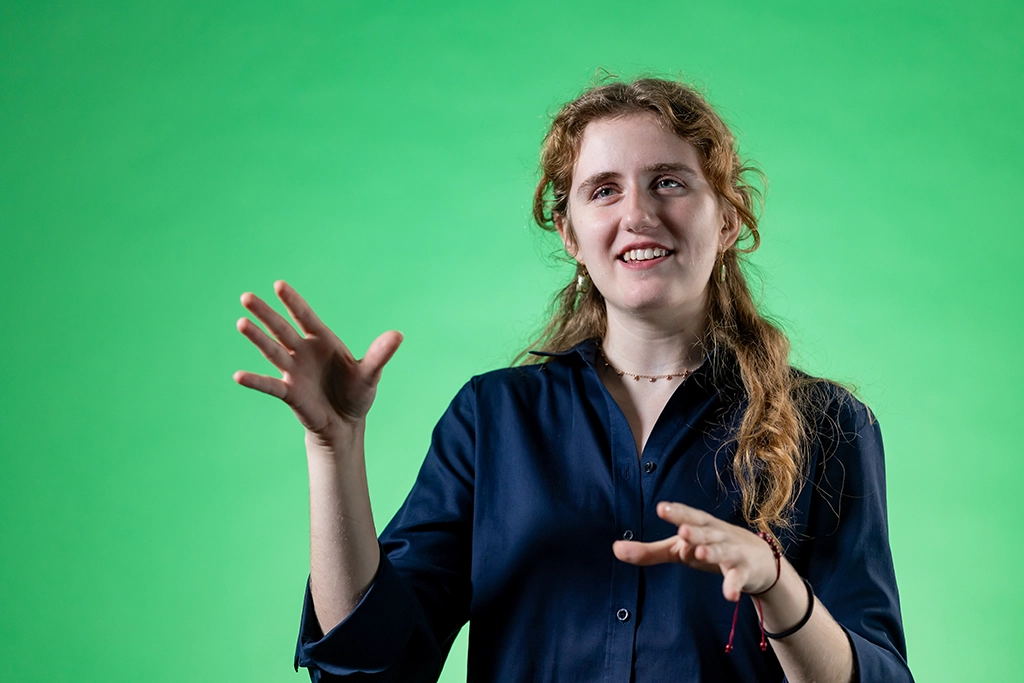
In her free time, Elisabeth volunteers for ND’s Bridge Peer Mentor Program, supporting immigrant and international students.
Elisabeth hopes to integrate her research background into her future medical career.
“I still want research to be a big part of my career,” she said. “I think the avenue I’ll pursue is through clinical trials and seeing how effective therapeutics are and monitoring for side effects.”
Outside the lab, Elisabeth has gained hands-on patient care experience as a Respiratory Specialist EMT at Altru.
“It’s been incredibly valuable to experience how everything works in the hospital,” she said. “My favorite parts are when I get to go to the ICU or help in the ER — you learn so much just by watching.” Those experiences, she said, confirmed her passion for healthcare: “I wanted to be sure that in the role of the provider, I’d feel comfortable. Doing EMT work really solidified that this is what I want to do.”
Her leadership extends beyond medicine. Through UND’s Bridge Peer Mentor Program, she supports immigrant and international students.
“I’ve always wanted to give back to the community,” she said. “I want people who aren’t originally from here to feel like this is their community too.”
Language isn’t just communication — it’s connection. When a patient can speak with a doctor in their own language, you can see their anxiety melt away. That connection is so important.
That same motivation inspired her to start Career Connect, a startup she founded through UND’s Runway Accelerator.
“I wanted to make something that would centralize job resources for immigrants and refugees,” she explained. “A lot of the existing resources were scattered or outdated, so I wanted to create something more accessible.”
A recipient of the Critical Language SPARK Scholar award in 2024 and Overseas Scholar award in 2025, Elisabeth also sees language as a vital bridge in healthcare.
“Language isn’t just communication — it’s connection,” she said. “When a patient can speak with a doctor in their own language, you can see their anxiety melt away. That connection is so important.”
For Elisabeth, being a Leader in Action means recognizing needs and taking initiative. “If you see something that could be improved, do something about it,” she said. “It’s easy to think someone else will take care of it — but being a leader in action means taking that step yourself.”
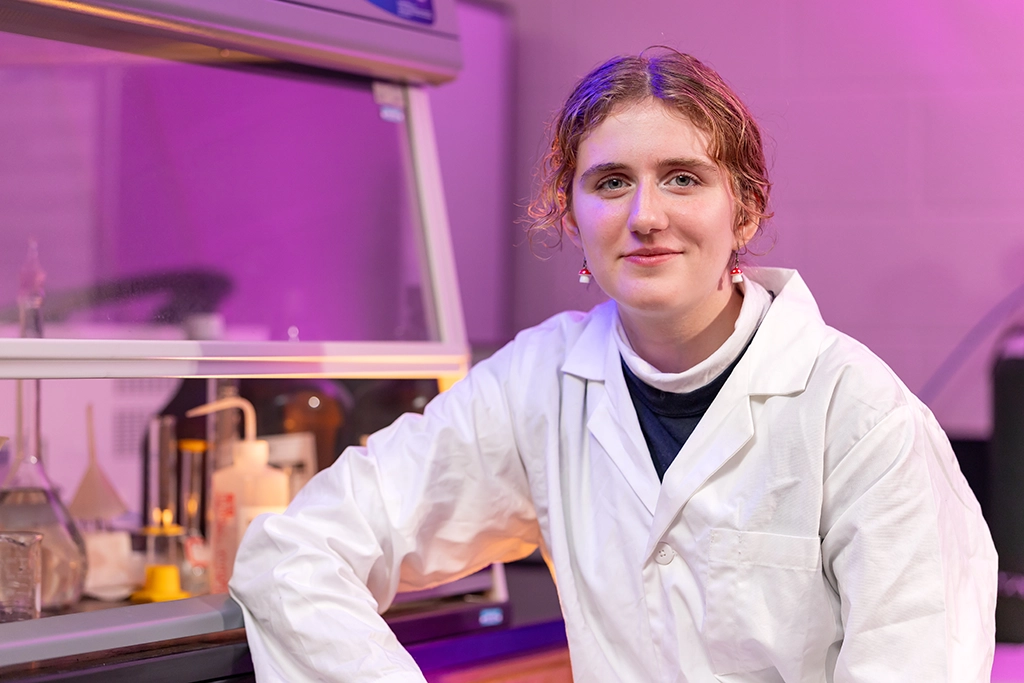
My favorite parts are when I get to go to the ICU or help in the ER — you learn so much just by watching
As she prepares to graduate and study for the MCAT, Elisabeth reflects on what UND has meant to her and her journey.
“UND really does provide a lot of avenues for students to better themselves,” she said. “It empowered me to explore all my interests — science, global studies, mentoring — and to find meaning in each one.”